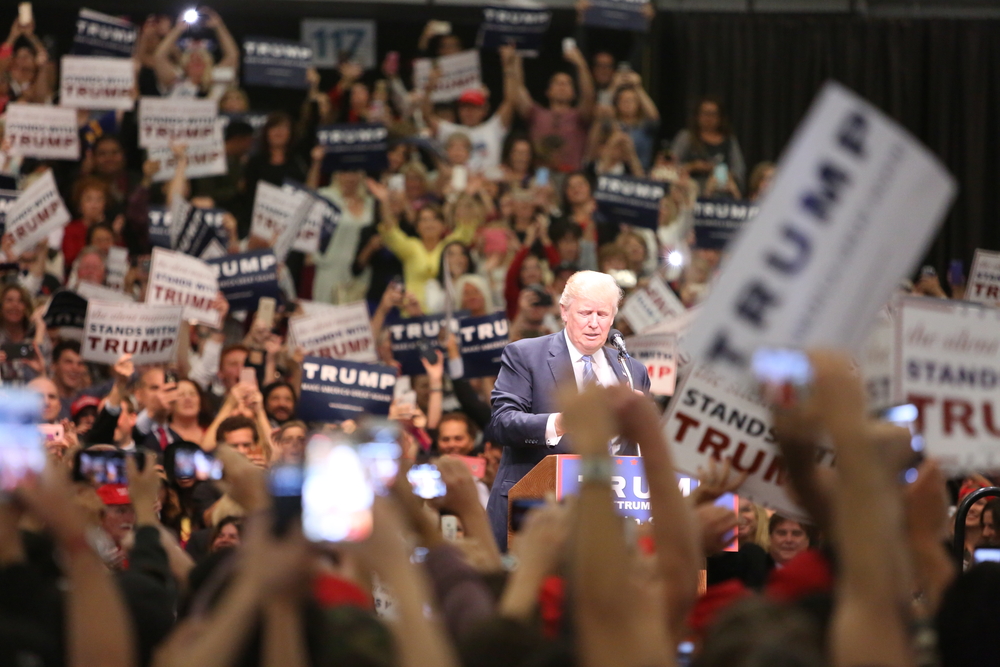
You’d think the world had come to an end. Anguished commentators have reacted to the US election as though it heralds the end of liberal democracy as we know it. The result was undeniably dramatic and will have consequences we can’t foresee. But I think the explanation for it is rather more prosaic: like every electorate everywhere in the world, American voters had a choice of imperfect outcomes, and they took a deep breath and made it. As is always the case, some are horrified by the voters’ decision – but their grief has carried them away, and is preventing them from learning the right lesson from Donald Trump’s victory.
In just over a decade of research, I have made something of a study of how losing political movements react to defeat. Though circumstances differ, most have one thing in common: they claim, at least inwardly, a moral victory. This is particularly the case for parties that have been ejected from government. They comfort themselves with the notion that the electorate did not properly appreciate their achievements in office, failed to understand what was at stake, had been bamboozled by a partisan media, and did not realise the horrors that lay in store for them under the incoming administration. It follows that the voters will come flocking back just as soon as they recognise their terrible error of judgment – and that in the meantime, the party need only hold firm to its previous positions, though perhaps with a bit more presentational pizzazz.
A more extreme form of this condition is the belief that large numbers of voters have not simply been misled, but have quite deliberately behaved very badly indeed. Through base motives of greed or prejudice they have consciously rejected virtue and reason, and knowingly chosen the dark side.
The first was prevalent among Tories for years after they were sent packing in 1997, and within the Labour movement after Gordon Brown’s government was put out of its misery in 2010. The second found a home in Jeremy Corbyn’s Labour Party, which now seems to regard winning elections as at best a secondary concern, and colours the tone of much post-referendum commentary – the suggestion being that many Brexit supporters came to their view through something worse than ignorance.
Disapproval of the voters also seems to be rife among anti-Trump elements. You can see it in the protests (which, given the reaction to Trump’s suggestion that he might not accept the election result, shows that the American left still hasn’t grasped irony, however much it may love John Oliver), and in the calls for moderate Republicans not to “normalise” the president-elect by taking jobs in his administration (as though not just Trump but his more than sixty million voters are beyond the mainstream and beyond the pale).
Needless to say, both of these mindsets lead inevitably to further defeat. The path to victory only begins with a proper understanding of why you lost. The longer Trump’s opponents stick to the theory that his voters were motivated by misogyny and racism (ignoring the fact that the states he flipped had elected and then re-elected Barack Obama), the longer they will be in the wilderness. They should also reflect on their own part in bringing about the result that so dismays them.
American voters were crying out for change, yet the Democrats offered its antithesis: the Washington establishment incarnate. People in states and counties the Democrats had come to take for granted worried about their jobs, their futures, prospects for their children, the ballooning cost of healthcare, the state of their roads and bridges, immigration, terrorism, the effect of trade deals on their industries, and America’s place in the world – and the Democratic candidate responded: did you hear what Donald Trump said about an ex-Miss Universe?
The Democrats thought everyone shared their assumptions. Having decided that no decent person could vote for Donald Trump – a candidate backed by a “basket of deplorables” – they seemed to argue that people had a moral responsibility to keep him out of office, irrespective of any other consideration: “our children are watching”, as her ads relentlessly reminded the TV audience.
But other things that were closer to home mattered more to people than Donald Trump’s flaws, and Donald Trump was talking about them – albeit in crude terms, and in even cruder terms about things they often wished he wouldn’t talk about at all. Yet when they looked over the fence to see what was on the left-liberal agenda, what did they hear? Gender-neutral pronouns, safe spaces, transgender bathroom rights – the burgeoning agenda of identity politics that many ordinary voters feel is widening and entrenching division – and what someone in one of my focus groups of African-American voters called the “rich white person problem” of climate change.
As I found in my US research, many voters found the choice at this election difficult and unappetising, but concluded that change was only going to come from one direction. Those who worry about Trump’s election and what it portends should draw the right lesson. Condemning the voters for their gullibility or wickedness might make you feel better but it isn’t going to change anybody’s mind. Real people have real worries. If you don’t respond to them, someone else will – and you might not like what happens next.


